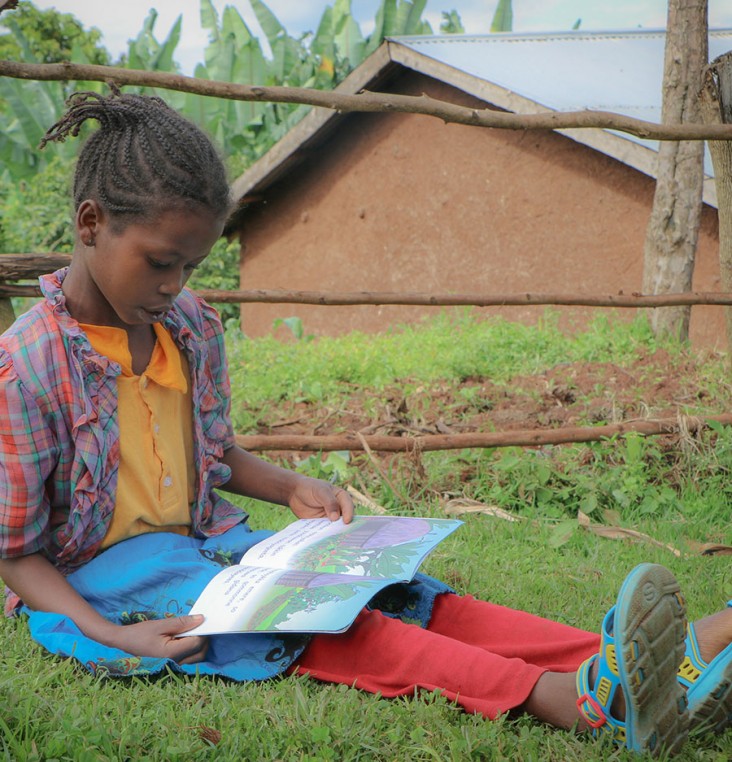Speeches Shim

Azmera is a second grade student who lives with her family in the Southern Nations, Nationalities, and Peoples’ Region (SNNPR), located in the southwest corner of Ethiopia and home to more than 56 different local languages.
Last year, in first grade, she struggled to read. “I was always good at other subjects, but I was a slow reader,” she explains. Her lack of confidence in her reading skills made her shy and reluctant to participate in reading lessons.
A 2014 study found that up to 50 percent of grade two students in SNNPR could not read. Research has shown that children learn to read best in their native language, but until recently, Azmera’s school had no reading books in her native Wolayttattoo language.
Things changed when Azmera and her fellow classmates at Dalbo Wogane Primary School received Wolayttattoo-language reading books in their classrooms and community book banks.
Azmera’s school is one of nearly 2,500 schools in Ethiopia benefitting from USAID’s Reading for Ethiopia's Achievement Developed (READ) Community Outreach program. Since 2015, the project has developed more than 1,000 supplementary reading titles in seven local Ethiopian languages, including 117 titles in Wolayttattoo.
Beyond the classroom, the READ Community Outreach program trains volunteers, who organize and lead regular community-based reading camps and other fun activities that allow children like Azmera to practice reading outside of school.
Azmera’s reading camp is held outside, under the shade of a large tree just a few minutes’ walk from her home. “I come to the reading camp every Saturday and Sunday afternoon at 2pm. Before we start reading, we play group games. I like all the games we play,” says Azmera, who also borrows books from the camp to read at home.
Today, Azmera is an avid and confident reader. “I like reading books,” she says, “I learn a lot of things from them. I recently read a book about the benefits of planting vegetables and fruits in our back yard.”
Amanuel Tegeno, the reading camp volunteer, has noticed a difference in Azmera. “When Azmera came to the reading camp, she had poor reading skills. But now she is one of my top students,” he explains. “She is no longer shy to read aloud to her classmates and she actively participates in class.”

Comment
Make a general inquiry or suggest an improvement.